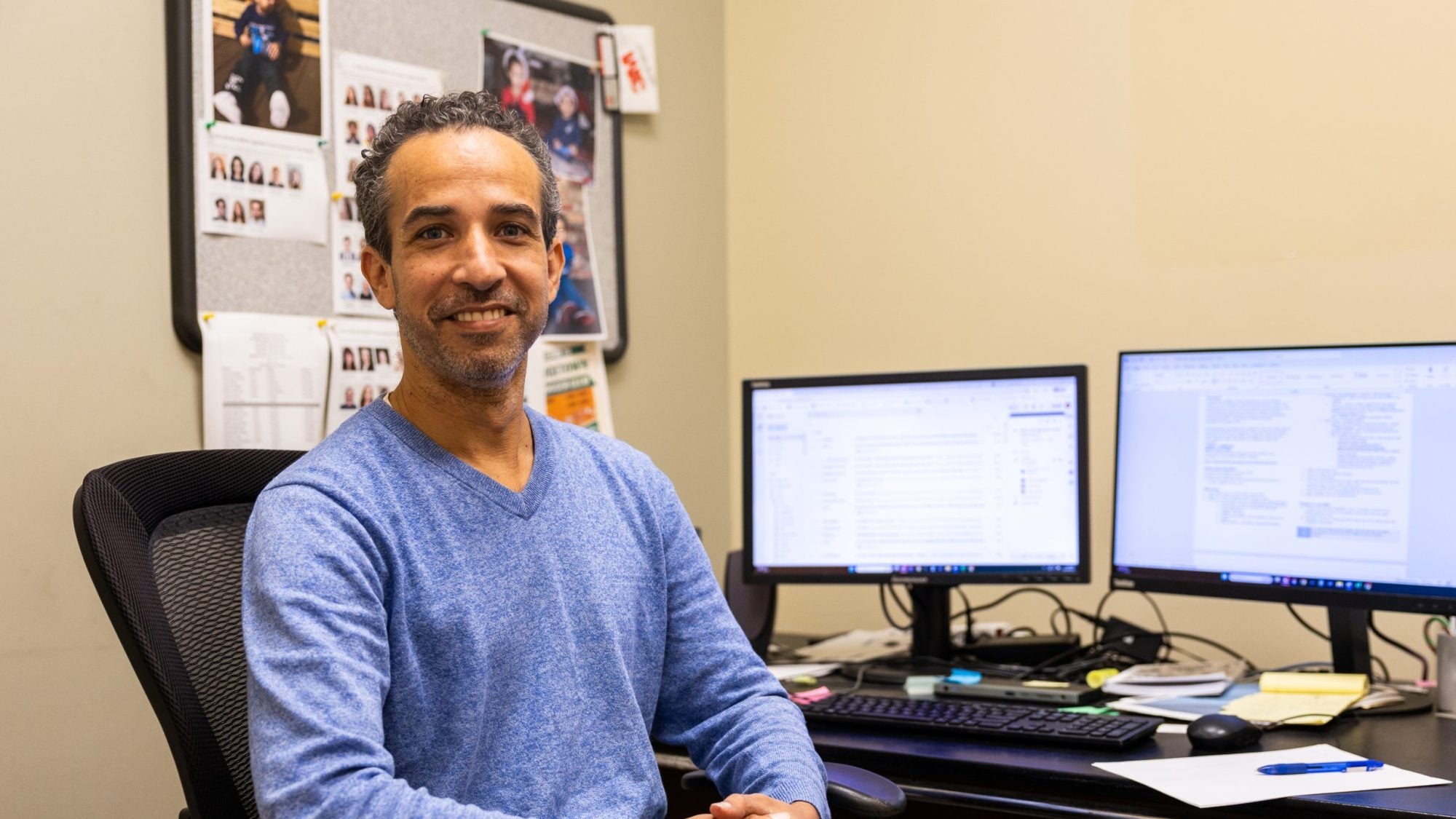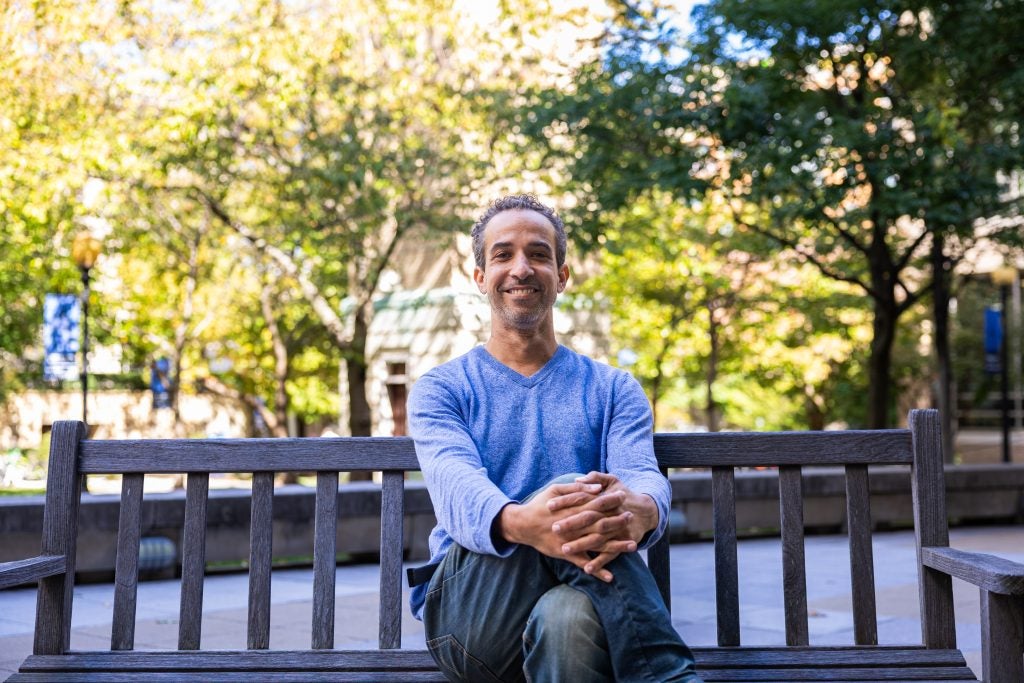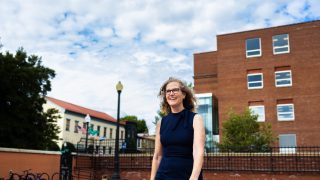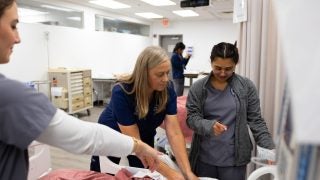This story is part of Georgetown Faces, a storytelling series that celebrates the beloved figures, unsung heroes and dedicated Hoyas who make our campus special.
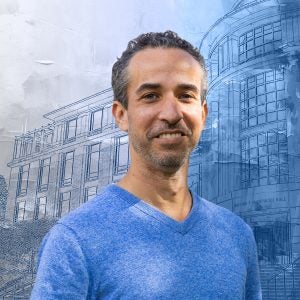
Legal discussions were always on the table in Niko Perazich’s house growing up.
As the son of an attorney and a judge in Washington, DC, Perazich remembers his mother often discussing case scenarios with him.
Years later, Perazich forged his own path in law, supporting Georgetown Law students fighting for underrepresented clients in DC. As a clinic manager, he oversees day-to-day operations for five of the Law Center’s 17 legal clinics in the clinical education program, through which more than 300 students practice the art of lawyering every year.
Perazich works closely with professors and students on their legal cases, which range from local wage-theft disputes to U.S. Supreme Court victories.
“I play a big role in keeping all the machinery oiled up and the gears turning,” said Perazich.
Perazich began his own law career as a paralegal. His work for DC law firms on high-profile cases brought him to New York, San Francisco and other major cities, sometimes for weeks at a time.
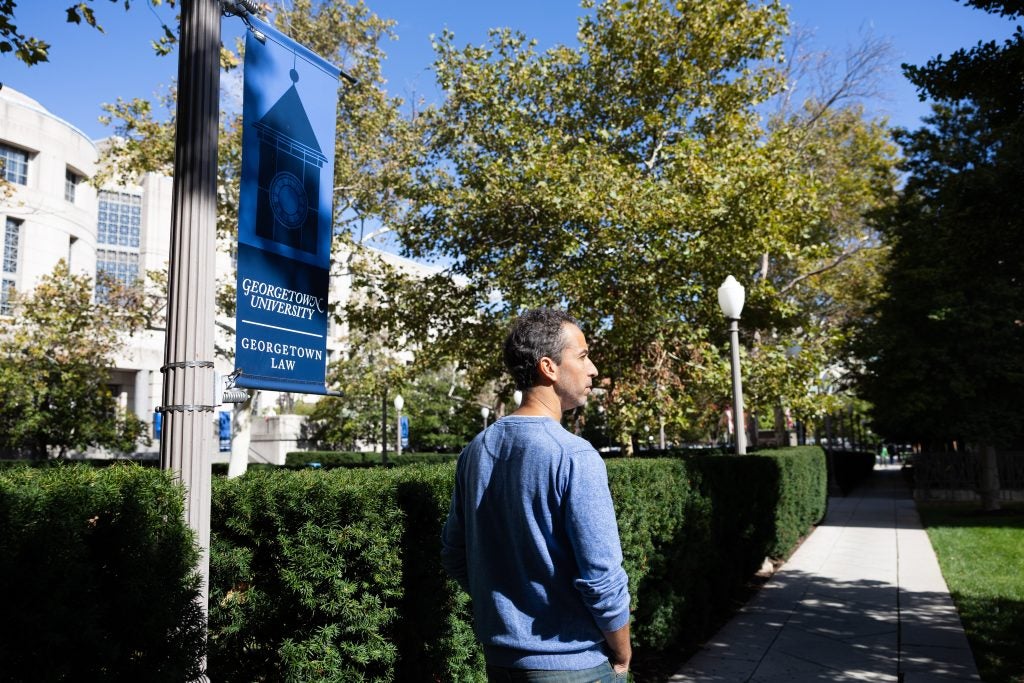
In 2010, he wanted a change of pace and began working for Georgetown Law. Today, having reached 15 years of service, Perazich is the longest-serving staff member in the clinical education program, where he manages everything from clinic finances to filing systems. He’s currently working through a backlog of legal documents dating to the 1970s.
His motivation for juggling so many moving parts?
“The clients, the cases and the results of those cases keep me going,” he said of providing legal services to clients who could not otherwise afford representation. “We do a lot of little things for a lot of [everyday] people.”
Learn more about Perazich’s bond with faculty and students, his hometown pride for the nation’s capital and the client he will never forget.
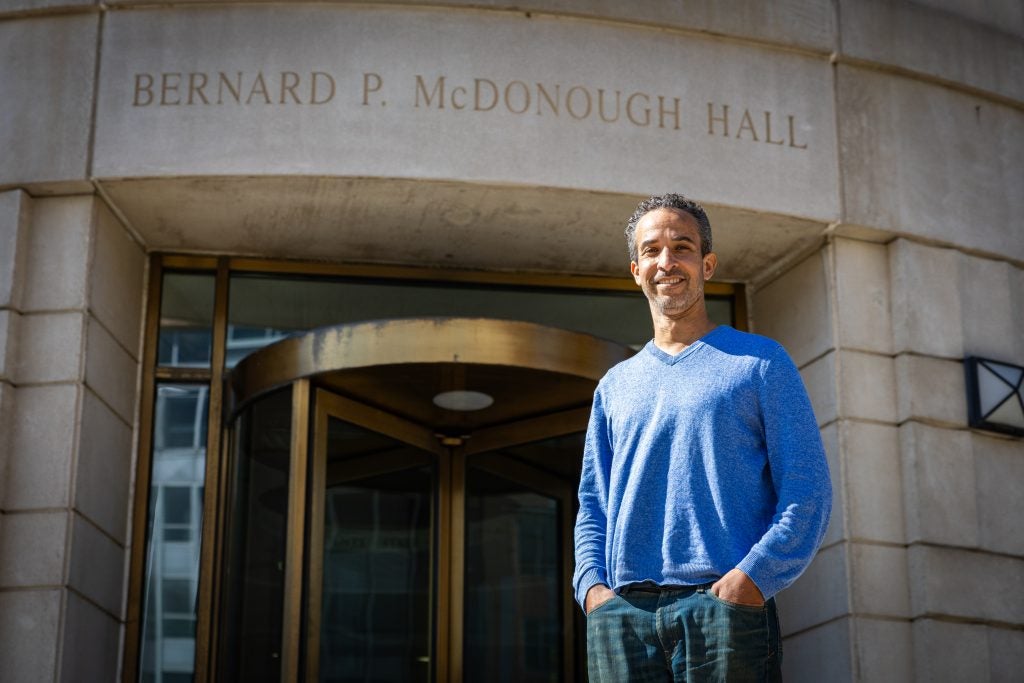
My journey to Georgetown: When I got out of undergrad, I worked at a boutique litigation firm. I realized that I didn’t want to be a lawyer, but I stayed in that world and became a free agent paralegal. I worked for all the big DC law firms as I jumped around from project to project. Eventually, I needed to find something more long-term, and that’s how I ended up at Georgetown Law.
What I appreciate about my colleagues: I’ve worked with some of these professors for a long time, so at this point, we have a very strong relationship. I feel lucky that I’m in a place where my colleagues and everybody I work with are good people. It’s certainly not a given that you’re going to be dealing with a bunch of reasonable, good people who are not only nice but also have a good view of the world.
The upsides of working with students: Working with young people is great. The students have so much passion and energy. I don’t actually do a lot of paralegal work anymore — the students take care of most of it. Occasionally, they’ll ask me to review briefs and look for errors. I’ve been here long enough that we’ve had students come through who are now professors or are on their way to becoming professors. It always makes me feel good to see people progressing onward.
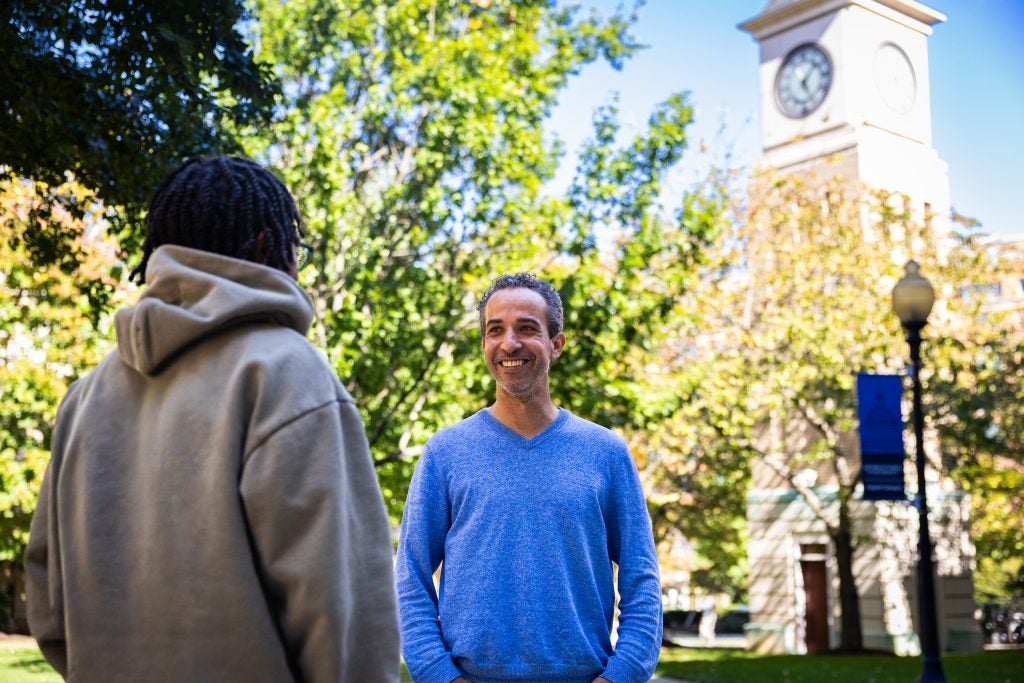
What makes legal academia special: Not every law firm is the same, but some of the expectations are pretty crazy. I had a month where I billed almost 300 hours. That’s 10 hours a day, every day of the month. Working in academia is much more reasonable. I love the fact that if I need to go pick up my kid from school because they’re sick, that’s not going to make a big wave. The university talks about [Jesuit values] a lot. It’s always at the forefront, and I think that it 100% influences the way people act and their attitude towards the job and towards each other. That’s something you would never find in a law firm.
Where you’ll find me outside of work: I’m a happily married father of two. I have a daughter who is 15 and a son who is 13. We have a dog — a chocolate lab — and live right next to the Hilltop Campus in Foxhall Village. I play soccer a lot, and my family is big into traveling; I went on safari with my daughter in March. Right now, I’m completely focused on my children and my family. That’s what drives me.
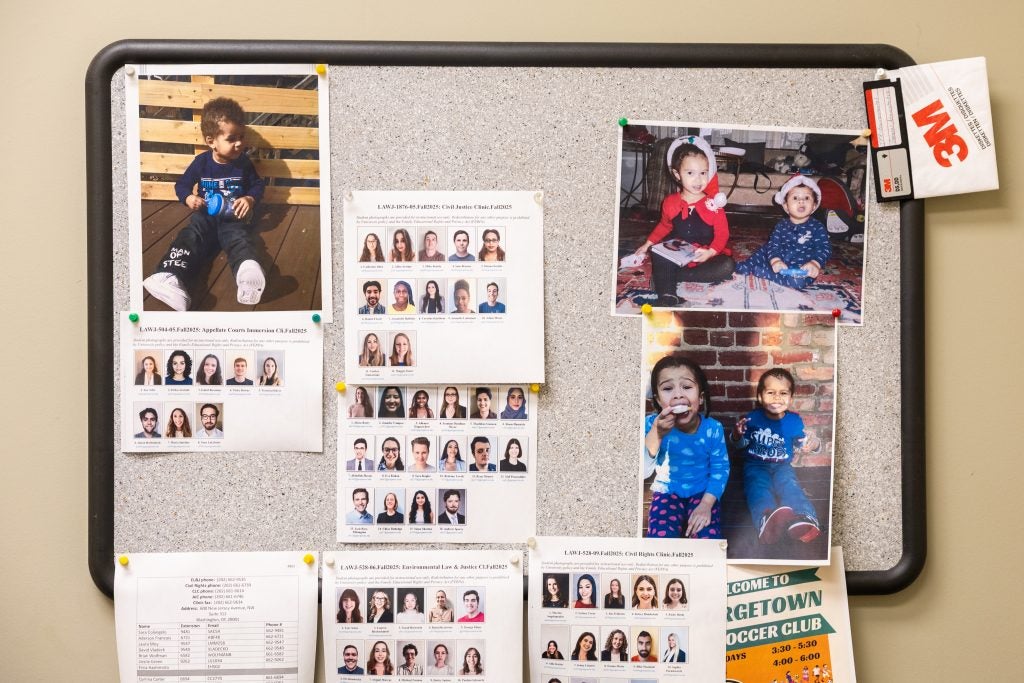
How it feels to reach 15 years of service: At this point, I’m the most senior administrator [among clinic staff]. I have a lot of institutional knowledge and am definitely a resource that other administrators and managers will often rely on. I’ve also worked with a bunch of professors over the years who are not clinical professors. For example, because of my work with Professor Brian Wolfman of the Appellate Courts Immersion Clinic, who does Supreme Court briefs, I worked on a Supreme Court brief for another professor. But it had nothing to do with the clinics at all.
The case that stuck with me: One of the best feelings I had was probably seven or eight years ago. Someone called and they were being discriminated against at work. I took the initial phone call with this [client], took his information and passed it on to the professor. Eventually, we ended up taking and winning the case. He called me back and thanked me, saying, ‘I remember when I called and you listened to me. You took the time. A lot of people pushed me aside.’ He just wanted to thank me, and that made me feel good.
Why I’m proud to be a Washingtonian: I’m DC-born and raised. I was actually born in [MedStar Georgetown University Hospital]. I really, really like Washington, DC, as a city. It has almost all the same sort of cultural stuff that you would find in a larger city: the arts and all the restaurants and everything else. It’s just smaller. People are a little bit more cordial and have a little bit more of that Southern charm. Especially for the law students, they’re contemplating the law in the city where they make the laws. You can get it all right here, the full process.
By Sarah Adler.
